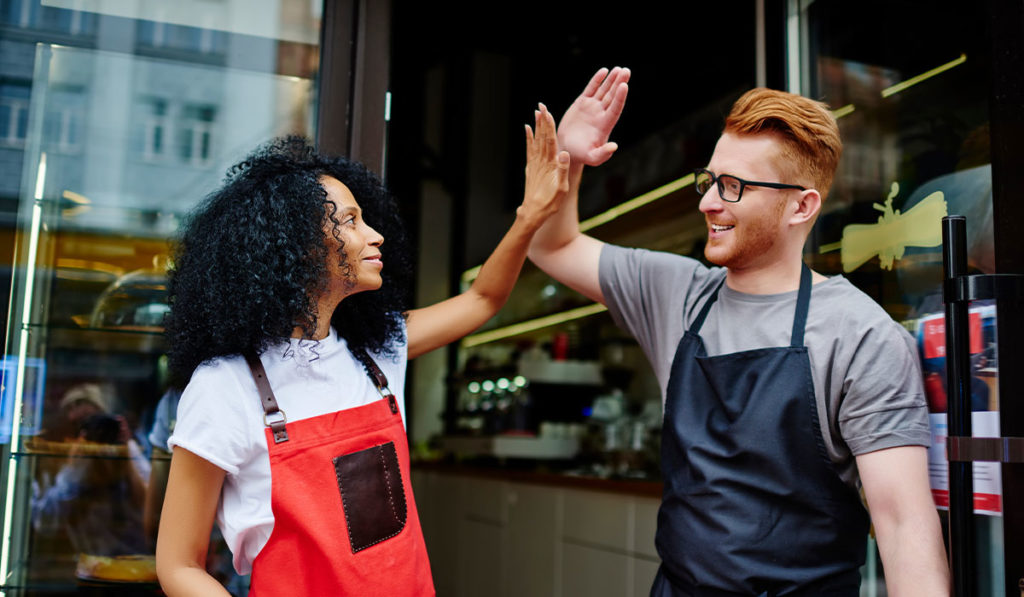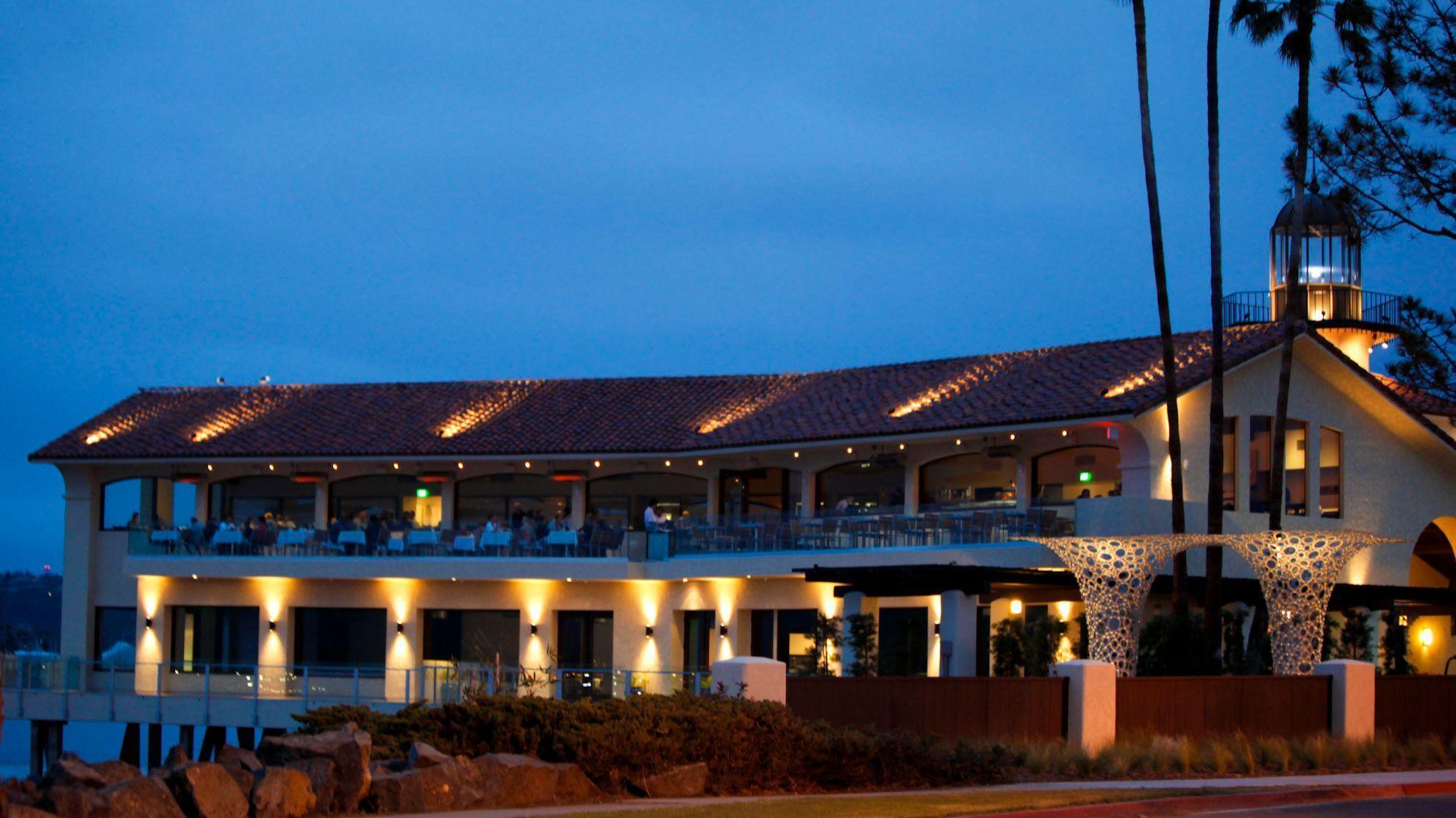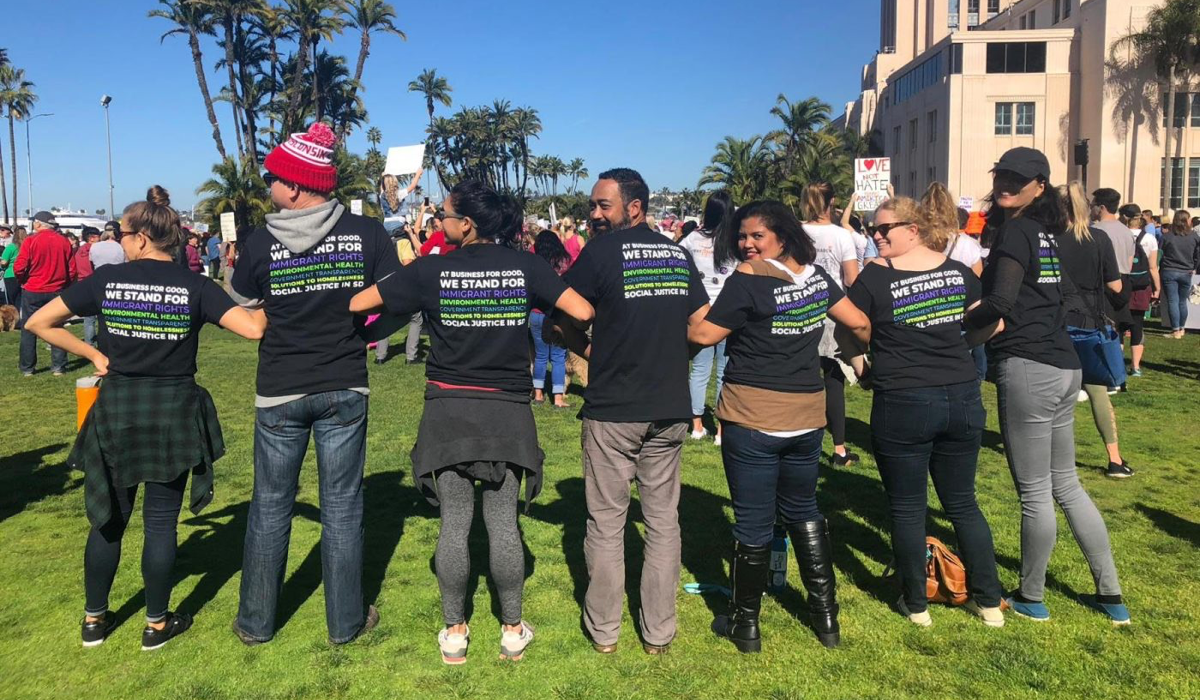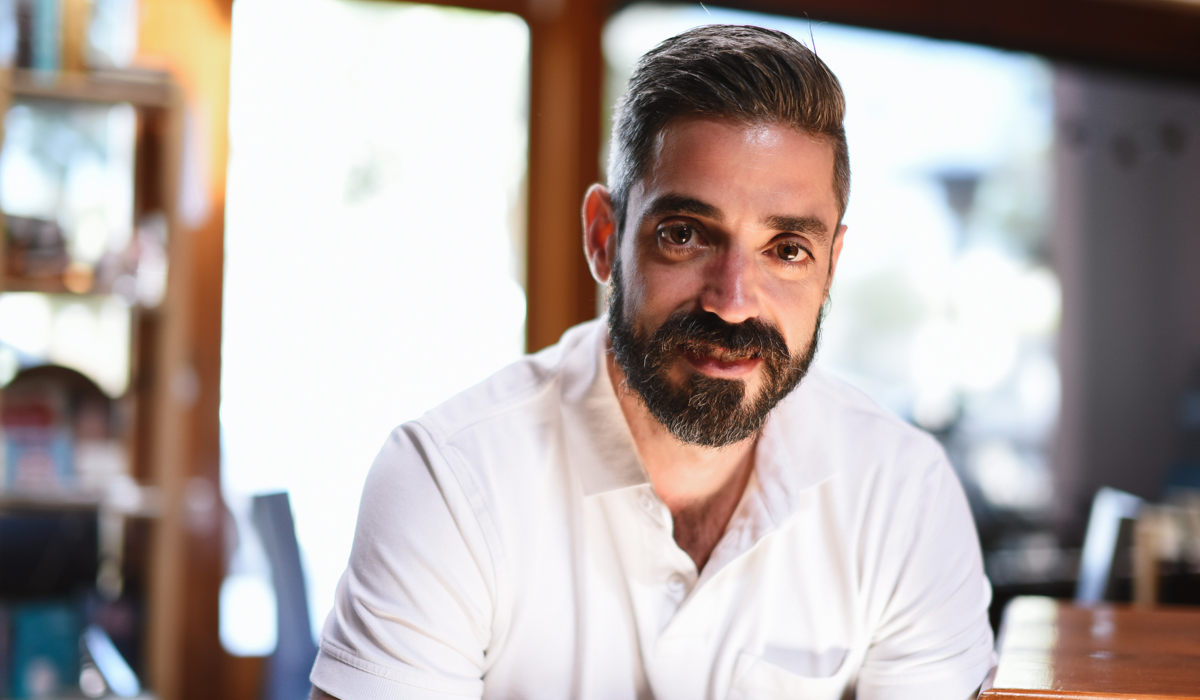High Road Kitchens: How COVID Gave Us the Chance to Reshape the Restaurant Industry

As restaurants and bars continue to run below capacity, or in some cases have permanently shuttered their doors, it’s become clear that something is fundamentally broken in the restaurant industry—and has been for a long time.
It’s tragic that it took a global pandemic to spotlight it, but the fact remains: Restaurant employees are some of the most vulnerable, at-risk workers in America.
With hardly any employment protections or financial security; many of the 14 million people who make up America’s restaurant workforce are pitifully ill-equipped to weather the COVID-19 crisis.
But we know that positive change can often come from catastrophes like this one. And that’s exactly what we saw in the pandemic; an opening to set a course towards a more equitable industry that benefits both restaurant owners and workers—for good.
What is the High Road Kitchens program?
High Road Kitchens gives us the fantastic opportunity to build a new, more equitable, sustainable industry for all. It’s a program of RAISE: High Road Restaurants, a coalition of over 800 “high road” restaurant owners nationwide who are already committed to improving conditions for their workers.
In April 2020, Mikey Knab launched High Road Kitchens right here in San Diego in response to COVID-19. He knew we had to do something to help restaurants and their employees survive this disaster. Getting HRK off the ground was bumpy at first; as the plan evolved and changed almost daily in tandem with new COVID-19 developments.
But through the generous philanthropic efforts and support of One Fair Wage, San Diego Workforce Partnership, and The San Diego Foundation, HRK was soon on solid ground. We were able to secure funding right away for 15 High Road Kitchens in San Diego. And we are incredibly proud to say that both of us—Mikey at Meza Family Restaurant Group and Juan Pablo at Super Cocina—were the very first High Road Kitchens in the world!
HRK is so important because it provides immediate jobs for restaurant workers, and a subsidy for responsible restaurant owners who commit to ensuring livable wages and increased equity for their employees when the industry has recovered in 2021.
In addition to securing these crucial provisions for workers, participating restaurants—the “high road kitchens”—also provide free meals to those who have been most impacted by the COVID crisis: low-wage workers, health care workers, first responders, and other community members in need.
How does High Road Kitchens work?
By using an initial grant investment of up to $20,000 that comes from HRK’s secured public and philanthropic dollars. Each independent “high road kitchen” restaurant commits to:
- Serve meals in a model that allows some community members to subsidize others’ meals, through both pick-up and delivery
- Feed thousands of low-wage workers as well as healthcare workers and others in need
- Keep service workers employed during the pandemic
The best part is, the HRK model allows restaurants to become self-sustaining after the initial grant investment. This happens by implementing a system where the restaurant’s paying customers actually become the means to subsidize the ongoing production of free meals.
During 2020, while restaurants are still operating below capacity, each participating HRK restaurant undergoes the “High Road Training and Technical Assistance” training program. It’s complete with financial modeling tools and case studies of other employers who have already successfully made these changes to their own restaurants, including:
- Making impactful race and gender equity commitments
- Creating a dignified path for upward mobility, where all restaurant employees can pursue a professional, long-term career in the industry
- Moving towards paying restaurant workers full benefits including health, dental, and PTO
In short, the High Road Training details everything a restaurant owner needs to know about how to move profitably to paying livable wages while also increasing race, gender, and class equity (between “front-” and “back-of-house” workers) in their restaurant.
Doing this ensures that as our national recovery happens. We’re all on the same page and ready to move forward with building a sustainable and equitable industry for all.
Why is raising wages in the restaurant industry so important?
Hands down, the biggest problem in the restaurant industry is the issue of employees’ unsustainable, unlivable low pay.
For nearly 30 years, the National Restaurant Association has invested millions in successfully convincing the American public that the federal tipped minimum wage of $2.13 per hour for servers is acceptable. After all, isn’t that what tips are for?
Actually, no. Tips are meant to be a bonus, not the basis of a worker’s wage. Workers shouldn’t have to rely on them to survive, because they aren’t guaranteed income. But they do. Tips are the only way workers can pay their rent, buy food for their children, or pay utility bills.
But doesn’t the law say employers have to make sure tips bring workers up to the full federal minimum wage? So, at the end of the day, workers are making the full minimum wage no matter what, right?
Again, no. The disorganized and lax enforcement, this law is regularly violated.
An investigation by the Department of Labor uncovered that nearly 84% of investigated restaurants had committed some sort of wage and hour violation. The fact that gainfully employed restaurant workers live in poverty at over twice the rate of the rest of the American workforce is glaring evidence that something’s seriously wrong.
On any given day, it’s a big problem. During the COVID-19 crisis, it’s disastrous.
In most of the country, the unemployment benefits that restaurant workers receive right now are based on reported income as low as $2.13 per hour, plus a rough calculation of tips. Therefore, this means a minuscule, barely livable income for workers and their families during an ongoing pandemic with no clear end in sight.
How can we fix the problem?
It doesn’t have to be this way. The two-tiered federal minimum wage system for tipped workers versus non-tipped workers is broken. We can fix it by simply paying all hourly workers one federally mandated minimum wage.
The solution is already here. One Fair Wage is a campaign built on the belief that every person who works in America should be paid at least a full, fair minimum wage from their employer.
One Fair Wage isn’t fanciful rhetoric. So far, seven states have supported One Fair Wage and raised the tipped minimum wage to the full minimum wage; effectively establishing one minimum wage for everyone.
In those seven states, poverty is lower, restaurant receipts are higher, and tipping is the same—if not better—than in the other 43 non-participating states.
How can we get every state to recognize that One Fair Wage is a win-win for restaurant owners, workers, and the entire economy? Growing the High Road Kitchens program is one major in-road.
HRK has already gained substantial popularity in its short four-month existence. As of August, there are over 20 participating restaurants in California.
Launching a program in New York City, we enrolled 30 restaurants. In June, NYC mayor Bill de Blasio allocated three million dollars to funding 100 additional family-owned restaurants (a $30,000 grant for each) that commit to One Fair Wage and High Road standards and practices.
With the HRK’s increased momentum and word of mouth. We expect to have 100-200 total restaurants signed on by the end of August alone. We’re excited to launch HRK in Boston and Detroit by the end of 2020, as well.
Ironically, the calamity that caused restaurant workers to temporarily lose their jobs can also be the key to ensuring equitable, sustainable careers for them in the long run.
We’re asking that from this crisis, we start anew—here in San Diego and across the U.S. We can rebuild a nation where businesses are rewarded for making the right-minded decision.
Yes, business as usual has been disrupted. However, that can be a good thing. The pandemic has given us a once-in-a-lifetime opportunity to actually do things better, and to be better. Let’s not waste it.
Together, we can survive this downturn by becoming more equitable, sustainable, and ethical businesses.
Do you love supporting local restaurants and ensuring every San Diegan in need has a meal? Place your next to-go order or donate to the High Road Kitchen project at Ponce’s Restaurant and Super Cocina!





